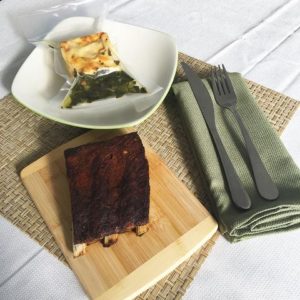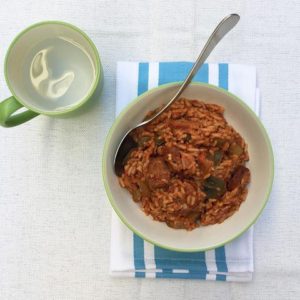From Chapter 1 of My Unscripted Life…
A car pulls up to the stoplight in front of the cafe and screeches to a halt. It’s a compact, shiny black sports car, and right away I know the driver isn’t from around here. First of all, it’s about eleventy bajillion degrees outside, and the top of the convertible is up. And when the driver whips into a parallel spot directly in front of our sidewalk table, I know it for sure. Wilder residents have many skills, but parallel parking is not one of them, which is why there are always so many empty spots along Poplar Street downtown.
The door opens and an older man steps out, his silver hair mussed, partly due to some intricate styling and partly due to the fact that he keeps running his hand through it as he glances up and down the street. His crisp, dark denim jeans, boat shoes, and white oxford tell me he’s not only not from around here, he’s from way out of town. I can see the shadow of his passenger through the dark tinted windows.
His frantic gaze settles upon Nazaneen and me, though Naz is oblivious. At this point it would take a real live New York Met walking up to our table and sitting down to get her attention.
“Excuse me,” the guy says, crossing the sidewalk to our table, “do you know where Roff Avenue is?” He holds up his phone. “My GPS keeps trying to get me to turn onto the train tracks.”
I immediately wonder why a handsome, well-dressed guy in an Audi is asking for directions to the part of downtown Wilder where one would stash a body, if there were ever any actual murders in our tiny town.
“Yeah, actually your GPS isn’t wrong. Roff is immediately after the train tracks.” I curve my hand sharply to the left to show him the turn. “It doesn’t even look like a road, but it’s there.”
He stares at me, his eyebrows knit together to form a little canyon of skepticism on his forehead.
“Just trust me and turn,” I assure him. He looks down at his phone screen. “Thanks. You live around here?”
Something about his clipped tone makes me think he’s not looking for any long answers, so I just nod.
“Well, listen, we’re going to be setting up production on a film here.” He reaches into his pocket and pulls out a black leather case, smaller than a wallet, and from it he produces a crisp white card and passes it to me. Robert Lewin, it reads in shiny black letters, and underneath in italics, Producer, Director. I run my thumb over the raised letters and feel a rush of excitement through my core. This was not at all what I expected when he stepped out of the car. Lawyer? Sure. Doctor? Possibly. But a movie filming in Wilder? This is news that qualifies as a distraction. “We’re still looking to fill a couple PA spots. Just runner-type stuff, but still. If you’re looking for a summer internship, call my office. We can always use a few locals on set.”
It’s not as big a deal as an actual New York Met, but it’s enough to draw Naz’s attention from her phone screen and her floundering team. We’ve just heard that a movie is going to be filming in our small, so-sleepy-as-to-be-in-a-coma home-town.
Naz reaches for the card in my hand and flips it over, as if maybe she’s going to find the words “Just kidding!” printed on the other side.
“A movie? For real?” she asks.
“For real,” he replies. He sticks out his hand for me to shake. “Rob Lewin.” There’s a look on his face like maybe we might recognize the name, maybe even that we should, but I don’t. One glance over at Naz, who is giving him a purposely blank stare, tells me she doesn’t either. It’s not like we’re country bumpkins. We see plenty of movies, Once football season ends, it’s pretty much the only thing to do on a Friday night. And I could name most of the actors in them. I’ve just never really paid much attention to directors other than, you know, Steven Spielberg or Martin Scorsese (he’s a director, right?).
“Like, a real movie?” I ask.
“I don’t make fake ones,” he says.
Naz is still not convinced. “Who’s in this movie?” She manages to keep her hands from making the implied air quotes, but her voice betrays her heavy skepticism.
“Well, it stars Milo Ritter, and—” Rob begins.
“Oh my God,” I blurt out. My voice comes out as a whisper, which is good, because I worried it would be a shout.
“The singer?” Naz snorts. I know she’s thinking back to our slumber parties the summer between sixth and seventh grade, when we’d make up dances to Milo Ritter songs and perform them for her older sisters in their backyard. We both used to have a poster of him hugging a beagle puppy, his bright blue eyes and white smile beaming down at us from above our respective beds. He was only fifteen when he released his first album, so it was way too easy to crush on him.
Rob chuckles at the mix of shock and disdain. He glances over his shoulder, then back at us, his mouth quirked into a wry smile. “Yeah, the singer. He’s trying something new. This’ll be his first film.”
Naz chuckles too. She hands Rob’s card to me, apparently satisfied with his legitimacy. “Good thing,” she says. “His last album sucked out loud.”
“Naz!” I stare wide-eyed at her.
“What? It was like music to have a coma to,” she says, and shrugs.
I shoot Rob an apologetic smile and hold up his business card. “Thanks. I’ll have to check with my—” I stop myself just before I say “parents.” I barely look my seventeen-almost-eighteen years, so he has to know I’m in high school, but I don’t want to seem like a child. “I’ll think about it and get back to you.”
Rob nods. “You talk to your mom and dad and let me know,” he says. “Oh, and where’s a good place to eat around here?”
“The Diner,” Naz and I reply in unison.
“Best burgers in town,” I tell him, and point him down the road and around the corner and give him strict instructions to order the onion rings. He climbs back into the sports car and pulls away.
I watch the taillights disappear around the corner. “Okay, did that just happen, or am I having a stress-induced stroke?”
I feel light and tingly, like I’m in that hazy space between dreaming and awake. Naz, on the other hand, looks completely nonplussed.
“You’re definitely having a stroke if you’re thinking of calling that guy,” she replies.
“What? Why? It’s not like I have anything else to do this summer.”
Naz winces at the reminder of our impending separation. Even though I told her over and over not to, I know she feels guilty for leaving me. It’s not her fault the admissions committee immediately recognized her science genius but found my art two rungs below amateur.
“I’m pretty sure doing nothing is better than getting ax-murdered by some ‘director,’ ” she says. This time she definitely hooks her fingers into air quotes.
“You just don’t like him because he’s a Yankee fan.” I wave the business card in her face. “He’s legit!”
She snatches it from my grasp. “Lemme see about this.” She holds the card in one hand and her phone in the other, typing the name in with her thumb. Within seconds, the screen is filled with links topped by a row of photos of the man who was just standing in front of us.
“Oh my God, is that—” I point, and Naz taps the tiny photo until it fills the screen with Rob in a sharp black tuxedo clutching a shiny golden statue.
“Okay, so he might be legit,” Naz says. She clicks back and opens his ScreenData page. The list of credits for movies and TV shows looks endless—stuff he’s written, directed, produced. Some of the titles I recognize, but there’s not much listed that I’ve actually seen. Mostly stuff that gets talked about on the public radio station my parents listen to, mentioned in the same breath as all the major movie awards and festivals. Like I said, I like movies, but I’m not much of a film buff. But just from looking, it’s clear he’s definitely legit.
I take the business card back from Naz and stare at the text. I may not have a best friend, and my future may still be in question, but I may have just solved the summer-plans problem.




































